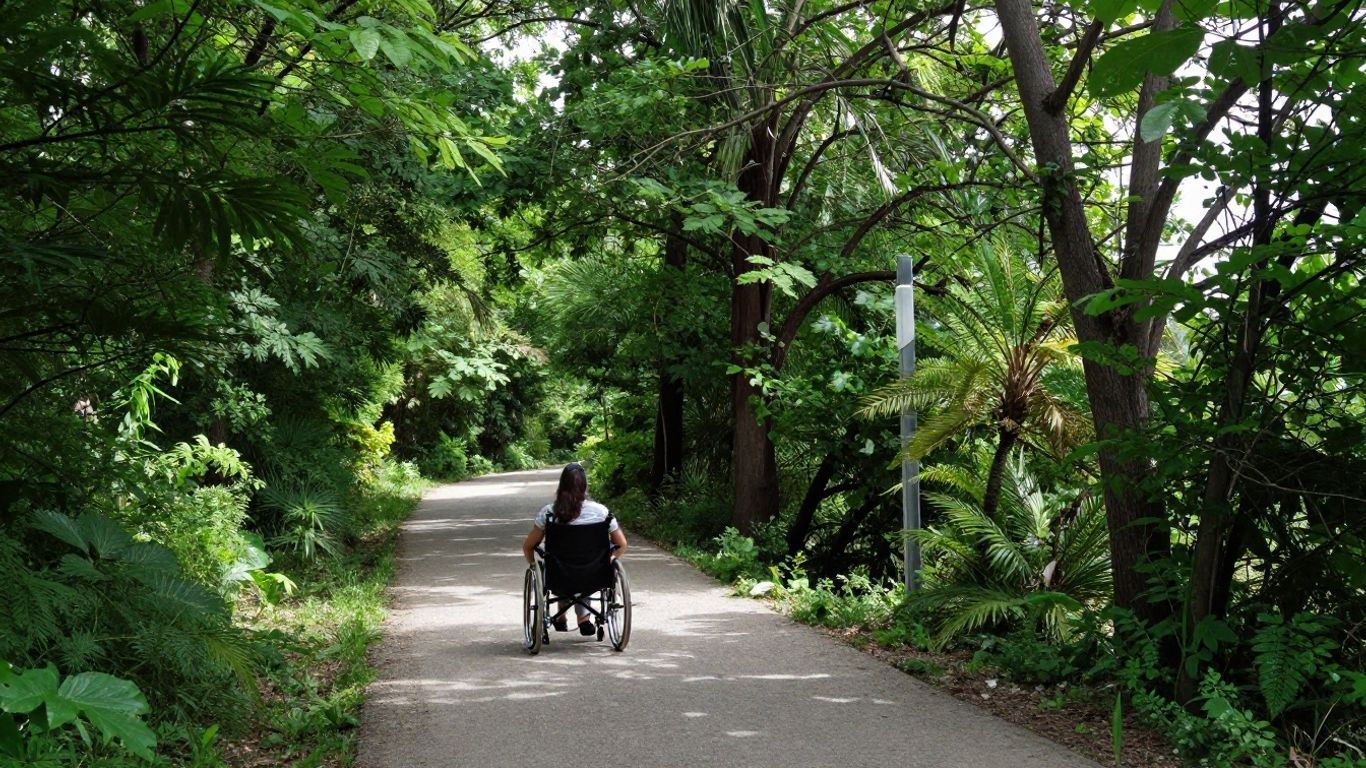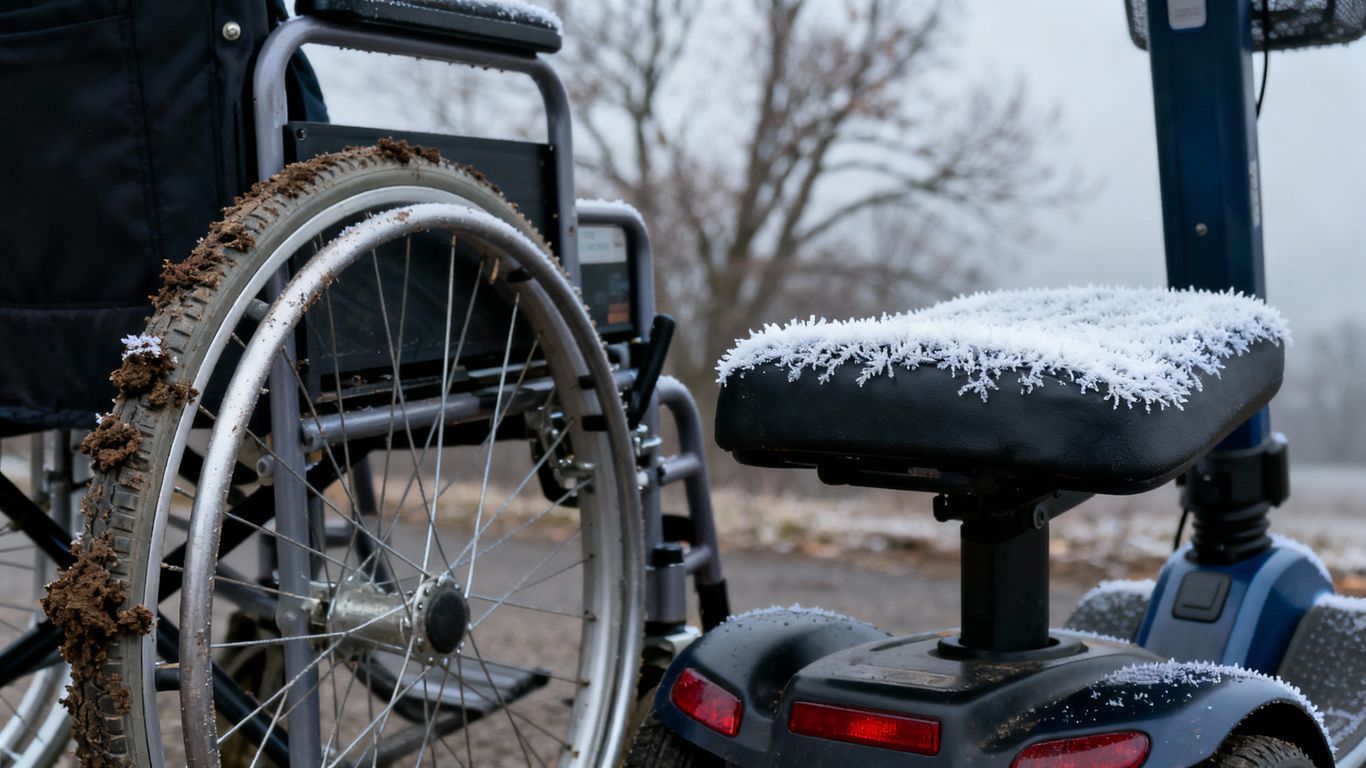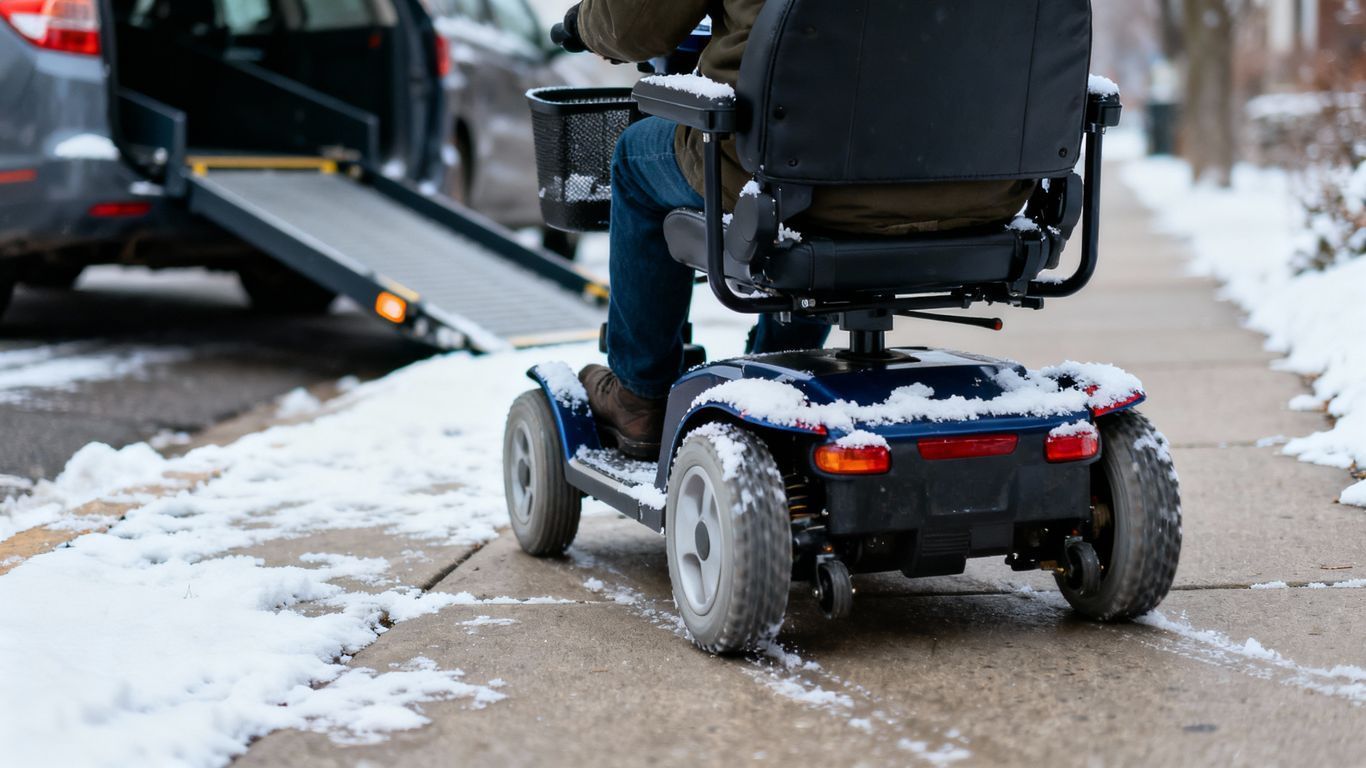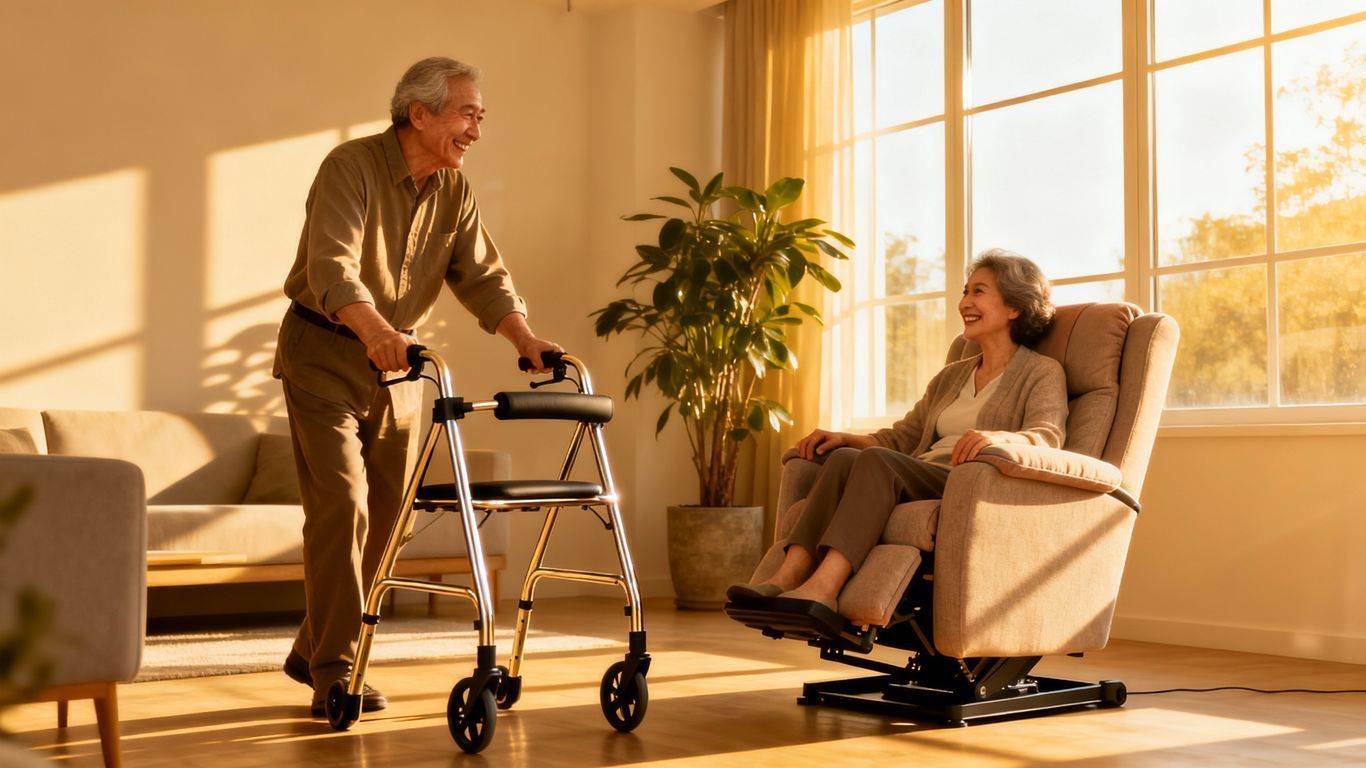How to Get Financial Help for Home Accessibility Modifications in Georgia (LaFayette, Dalton & Beyond)
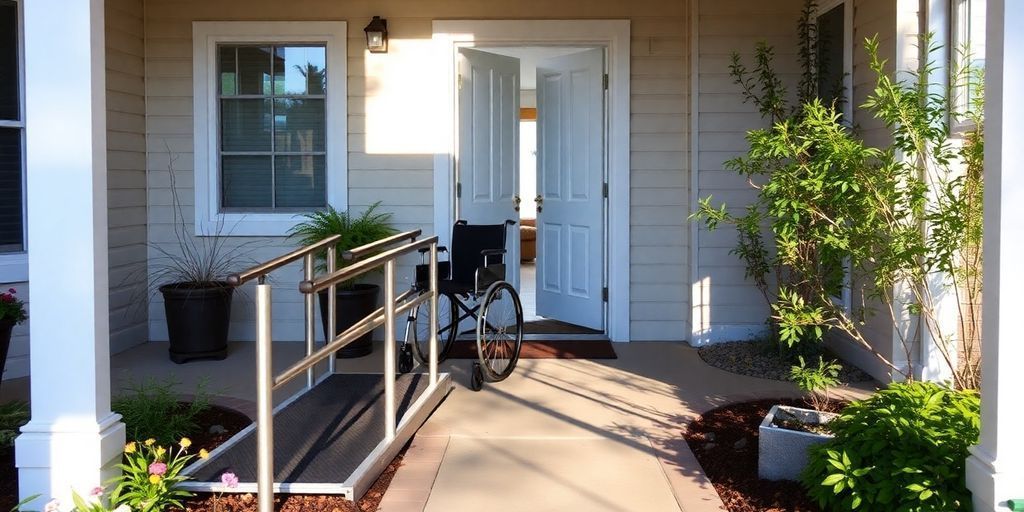
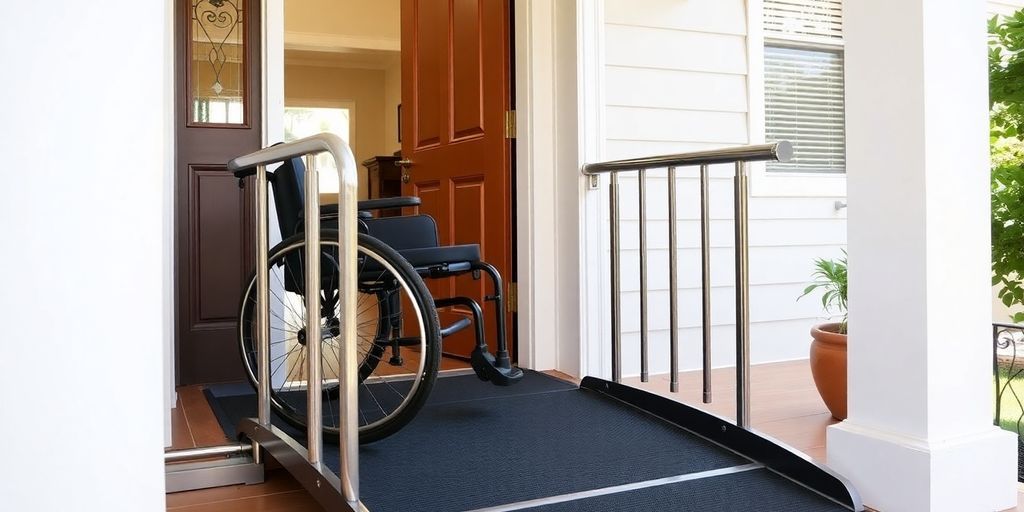
If you or someone you know needs to make their home more accessible in Georgia, there are ways to get financial help. Whether it’s for a loved one with a disability or for aging in place, there are options available. This guide will walk you through the different types of financial assistance for home accessibility modifications, especially in areas like LaFayette and Dalton.
Key Takeaways
- Explore various financial assistance options for home modifications in Georgia.
- Understand eligibility requirements for different assistance programs.
- Learn how to apply for financial aid effectively.
- Discover local resources and nonprofits that can help with funding.
- Read success stories to see how others have benefited from these programs.
Understanding Financial Assistance Options for Home Accessibility
Types of Financial Assistance Available
Okay, so you're looking to make your home more accessible, which is awesome! But let's be real, it can get expensive fast. The good news is there are different ways to get help. Financial assistance comes in a few main forms.
- Grants: This is basically free money you don't have to pay back. Score!
- Loans: You borrow money and pay it back over time, usually with interest. Look for low-interest options.
- Tax Credits/Deductions: These can lower your tax bill, freeing up some cash.
It's worth looking into all the options to see what fits your situation best. Don't just assume one type is better than another without doing some digging.
Eligibility Criteria for Assistance Programs
So, you know the types of assistance, but who actually gets the money? Well, it depends. Each program has its own rules, but here are some common things they look at:
- Income: Many programs are for low-to-moderate income households.
- Disability: Some are specifically for people with disabilities.
- Age: Seniors might have access to programs others don't.
- Location: Some programs are only available in certain areas.
It's important to read the fine print and see if you meet all the requirements. Don't waste your time applying if you don't!
How to Apply for Financial Assistance
Alright, you've found a program you're eligible for. Now what? Time to apply! Here's the general process:
- Research: Gather all the info you can about the program. Community resources can be a great starting point.
- Application: Fill out the application completely and honestly.
- Documentation: Provide all the required documents (proof of income, medical records, etc.).
- Follow-up: Check in on your application status and respond to any requests promptly.
It can be a bit of a process, but stay organized and persistent. Good luck!
Local Resources for Home Accessibility Modifications
Community Organizations in LaFayette
LaFayette, Georgia, has some local groups that can be a big help if you're trying to make your home more accessible. These organizations often have connections to resources you might not find on your own. They can provide guidance, connect you with local contractors, and sometimes even offer small grants or assistance with paperwork. It's worth reaching out to see what's available in your immediate area.
- Local churches and faith-based groups often have outreach programs.
- Senior centers are great places to find information on aging-in-place resources.
- Disability advocacy groups can provide support and advice.
State Programs Supporting Accessibility
Georgia offers a few state-level programs designed to help residents with home accessibility modifications. These programs can vary in scope and eligibility, so it's important to do your research. The Department of Community Affairs is a good place to start, as they often have information on housing assistance programs. Also, look into programs specifically designed for seniors or individuals with disabilities.
State programs can be a bit bureaucratic, so be prepared for some paperwork. It's often helpful to have all your documentation ready before you start the application process. This includes things like proof of income, medical records, and contractor estimates.
Nonprofits Offering Financial Aid
Several nonprofit organizations in Georgia are dedicated to helping people afford home modifications. These groups often focus on specific populations, such as veterans, seniors, or individuals with particular disabilities. They might offer grants, low-interest loans, or even direct assistance with construction. Don't overlook these resources, as they can make a significant difference in your ability to fund your project.
- Rebuilding Together is a national organization with local affiliates in Georgia.
- Habitat for Humanity sometimes undertakes accessibility projects.
- The United Way can connect you with local resources and programs.
Federal Programs Supporting Home Accessibility in Georgia
Overview of Federal Assistance Programs
When it comes to making your home more accessible, the federal government has a few programs that can really help. These programs are designed to assist individuals with disabilities and older adults in modifying their homes to improve safety and independence. Understanding these options is the first step in securing the support you need.
How to Access Federal Funds
Getting your hands on federal funds for home accessibility isn't always a walk in the park, but it's doable if you know the steps. Here’s a simplified guide:
- Research: Start by figuring out which programs you might be eligible for. HUD and the VA are good places to start.
- Application: Each program has its own application process. Make sure you fill out everything accurately and provide all the required documentation.
- Documentation: Gather all necessary documents like proof of income, disability verification, and project proposals.
- Follow-Up: Don't be afraid to follow up on your application. Sometimes things get lost in the shuffle.
It's important to remember that federal funding often comes with specific requirements and guidelines. Make sure you understand these before you start your project to avoid any surprises down the road.
Important Deadlines and Requirements
Missing deadlines or not meeting requirements can derail your application. Here's what you need to keep in mind:
- Application Deadlines: Federal programs often have strict deadlines. Check the specific program's website for the most up-to-date information.
- Eligibility Criteria: Each program has its own set of eligibility requirements. Make sure you meet these before applying.
- Documentation: Gather all necessary documents like proof of income, disability verification, and project proposals.
- Inspection Requirements: Some programs require inspections before and after the modifications to ensure they meet certain standards.
Grants and Loans for Home Modifications
Types of Grants Available in Georgia
Okay, so you're looking for grants to help make your home more accessible? That's awesome! There are actually a few different kinds floating around in Georgia. Some are specifically for seniors, others for people with disabilities, and some are even targeted at veterans. The trick is figuring out which ones you actually qualify for.
- Federal grants: These are usually the big ones, but they can be super competitive.
- State grants: Georgia has some programs, but funding can be limited.
- Local grants: Don't forget to check with your city or county – they might have smaller, less well-known grants available.
It's worth spending some time researching all your options.
Low-Interest Loan Options
Grants are great, but let's be real, they're not always easy to get. That's where low-interest loans come in. These can be a really good alternative if you need to get started on those home modifications ASAP. Think of it as an investment in your future comfort and independence. Plus, the low interest means you won't get hammered with crazy payments down the road.
- Check with credit unions: They often have better rates than big banks.
- Look into government-backed loans: These can have even lower rates and more flexible terms.
- Consider home equity loans: If you own your home, this could be a good option.
Loans can be a good option, but make sure you understand the terms and conditions. Don't just jump at the first offer you see. Shop around and compare rates. It's also a good idea to talk to a financial advisor to see if a loan is the right choice for you.
How to Secure Funding for Modifications
Alright, so you know about grants and loans, but how do you actually get the money? Well, it's all about being prepared and persistent. First, gather all your documents. Proof of income, medical records, contractor estimates – the whole shebang. Then, fill out those applications carefully. Double-check everything before you submit it. And don't be afraid to follow up! A little nudge can sometimes make all the difference. Consider exploring resources like the Housing Resource Hub for additional support.
- Get organized: Keep all your documents in one place.
- Be thorough: Fill out applications completely and accurately.
- Follow up: Don't be afraid to check on the status of your application.
Navigating the Application Process for Assistance
Step-by-Step Guide to Applying
Okay, so you're ready to apply for some financial help to make your home more accessible. That's awesome! But where do you even start? It can feel overwhelming, but breaking it down into steps makes it way easier.
- Research programs: Don't just jump into the first one you find. Look at several options to see which one fits your needs and eligibility. Check out emergency payment assistance in your area.
- Gather documents: Most applications need similar stuff – proof of income, ID, medical records explaining why you need the modifications, etc. Get all this together before you start filling out the forms. It saves time later.
- Fill out the application: Read everything carefully! Answer all questions honestly and completely. If you skip something, it could delay your application.
- Submit and follow up: Send in your application and then… wait. But don't just sit there! Check in after a week or two to make sure they received it and see if they need anything else from you.
Common Mistakes to Avoid
Applying for financial assistance can be tricky. Here are some common pitfalls to watch out for:
- Not reading the instructions: Seriously, read them. Every program is different, and you don't want to get rejected because you missed something simple.
- Incomplete applications: Leaving blanks or not providing all the required documents is a surefire way to get delayed or denied.
- Exaggerating your needs: Be honest about your situation. Overstating things can backfire.
- Missing deadlines: Mark those dates on your calendar and don't wait until the last minute to apply.
Tips for a Successful Application
Want to increase your chances of getting approved? Here are a few tips:
- Be organized: Keep all your documents in one place and create copies.
- Be clear and concise: When explaining your needs, be specific and avoid jargon.
- Get help if you need it: Don't be afraid to ask for assistance from a social worker, advocate, or someone who has gone through the process before.
Remember, persistence is key. Don't get discouraged if you get rejected the first time. Learn from the experience, make any necessary adjustments, and try again. There are resources available to help you through this process, so don't hesitate to reach out.
Additional Support Services for Home Accessibility
Making your home more accessible can feel like a huge undertaking, but you don't have to do it alone. There are lots of places to turn for help beyond just the initial funding.
Consultation Services for Home Modifications
Sometimes, the hardest part is figuring out what modifications you actually need. That's where consultation services come in. These services can assess your current living situation and provide recommendations tailored to your specific needs and abilities. They can help you prioritize projects and even create a plan to tackle them in stages.
Finding Contractors for Accessibility Projects
Finding the right contractor is super important. You want someone who not only does good work but also understands the specific requirements of accessibility modifications.
Here's what to keep in mind:
- Check for certifications: Look for contractors with certifications in accessible home modifications.
- Get multiple bids: Don't settle for the first estimate you receive. Getting several bids will help you compare prices and services.
- Read reviews and ask for references: See what other people have to say about their experiences with the contractor.
Resources for Ongoing Support
Accessibility isn't a one-time fix; it's about creating a sustainable living environment. Ongoing support can be invaluable for maintaining your modifications and adapting to changing needs.
- Maintenance services: Regular maintenance can prevent small issues from becoming big problems.
- Assistive technology training: Learn how to use new devices and technologies effectively.
- Support groups: Connect with others who have gone through similar experiences for advice and encouragement.
It's easy to feel overwhelmed by the whole process. Remember, there are people and organizations dedicated to helping you every step of the way. Don't hesitate to reach out and ask for assistance. There are also services like Patient AirLift Services (PALS) that can help with transportation for medical needs.
Success Stories: Home Accessibility Modifications in Georgia
Real-Life Examples of Successful Modifications
It's always inspiring to hear how home modifications have truly changed lives. Take, for instance, the story of Mrs. Gable in Dalton. She had increasing difficulty navigating her multi-story home after a hip replacement. With the help of a grant and some local contractors, they installed a stair lift. Now, she can access all levels of her home without pain or fear of falling.
Another example is Mr. Henderson in LaFayette. He uses a wheelchair and found it nearly impossible to enter and exit his home independently. A ramp installation made a world of difference, allowing him to regain his independence and participate more fully in community activities. These stories highlight the tangible benefits of accessibility modifications.
- Ramp installations for wheelchair access
- Bathroom modifications for safer bathing
- Kitchen redesigns for easier meal preparation
Impact of Financial Assistance on Families
Financial assistance can be the key that unlocks a more accessible and comfortable life. It's not just about the physical changes to a home; it's about the emotional and psychological impact on families. When a loved one can move freely and safely within their home, it reduces stress and improves overall well-being for everyone. Financial aid can alleviate the burden of costly modifications, making them attainable for families who might otherwise struggle to afford them.
The peace of mind that comes with knowing your loved one is safe and comfortable in their own home is priceless. Financial assistance programs make this a reality for many families in Georgia.
Community Feedback and Testimonials
Hearing directly from people who have benefited from these programs provides valuable insight and encouragement. Many residents express gratitude for the support they received, emphasizing the positive changes in their daily lives. Here are a few common themes from community feedback:
- Increased independence and mobility
- Improved safety and reduced risk of falls
- Enhanced quality of life and overall well-being
In Georgia, many families have made their homes more accessible through simple changes. These modifications have helped people with disabilities live more comfortably and independently. If you want to learn more about how these changes can make a difference, visit our website for inspiring stories and helpful tips!
Wrapping It Up
Getting financial help for home accessibility changes in Georgia can feel overwhelming, but it doesn’t have to be. There are plenty of resources out there, from local programs in LaFayette and Dalton to state and federal options. Whether it’s grants, loans, or assistance from nonprofits, you have options. Just take it step by step. Start by checking out what’s available in your area, and don’t hesitate to reach out for help if you need it. Remember, making your home more accessible is a big deal, and you deserve support to make it happen.
Frequently Asked Questions
What types of financial help are available for home modifications?
There are various types of financial help like grants, loans, and state programs that assist with making homes more accessible.
Who can apply for these financial assistance programs?
Eligibility usually includes low-income families, seniors, and people with disabilities, but it can vary by program.
How do I start the application process for financial help?
You can begin by researching available programs and gathering necessary documents like income proof and medical records.
Are there local organizations in LaFayette that provide assistance?
Yes, there are community groups and nonprofits in LaFayette that help with funding for home accessibility projects.
What federal programs can I access for home modifications?
Federal programs like the Section 504 Home Repair program offer financial aid to make homes more accessible.
What should I do if my application is denied?
If your application is denied, you can ask for feedback, correct any issues, and reapply or look for other assistance options.
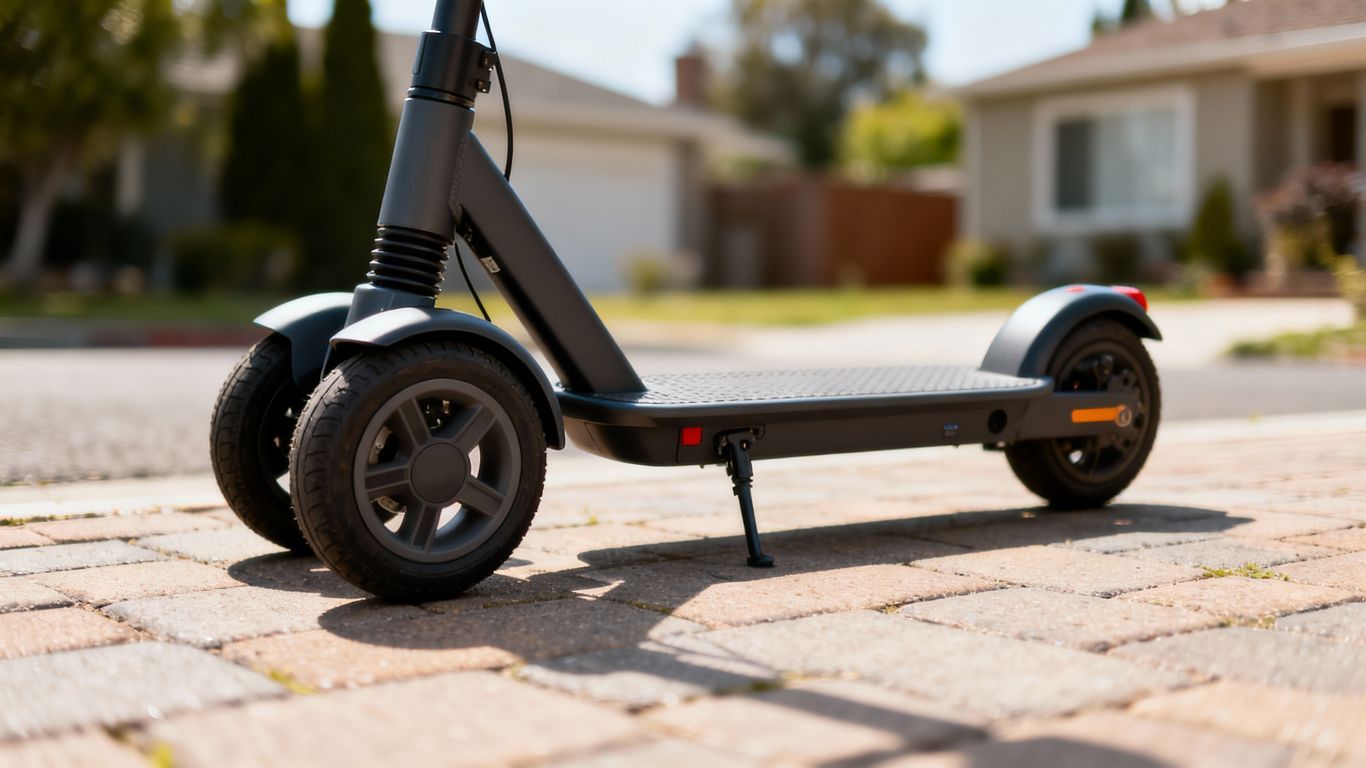
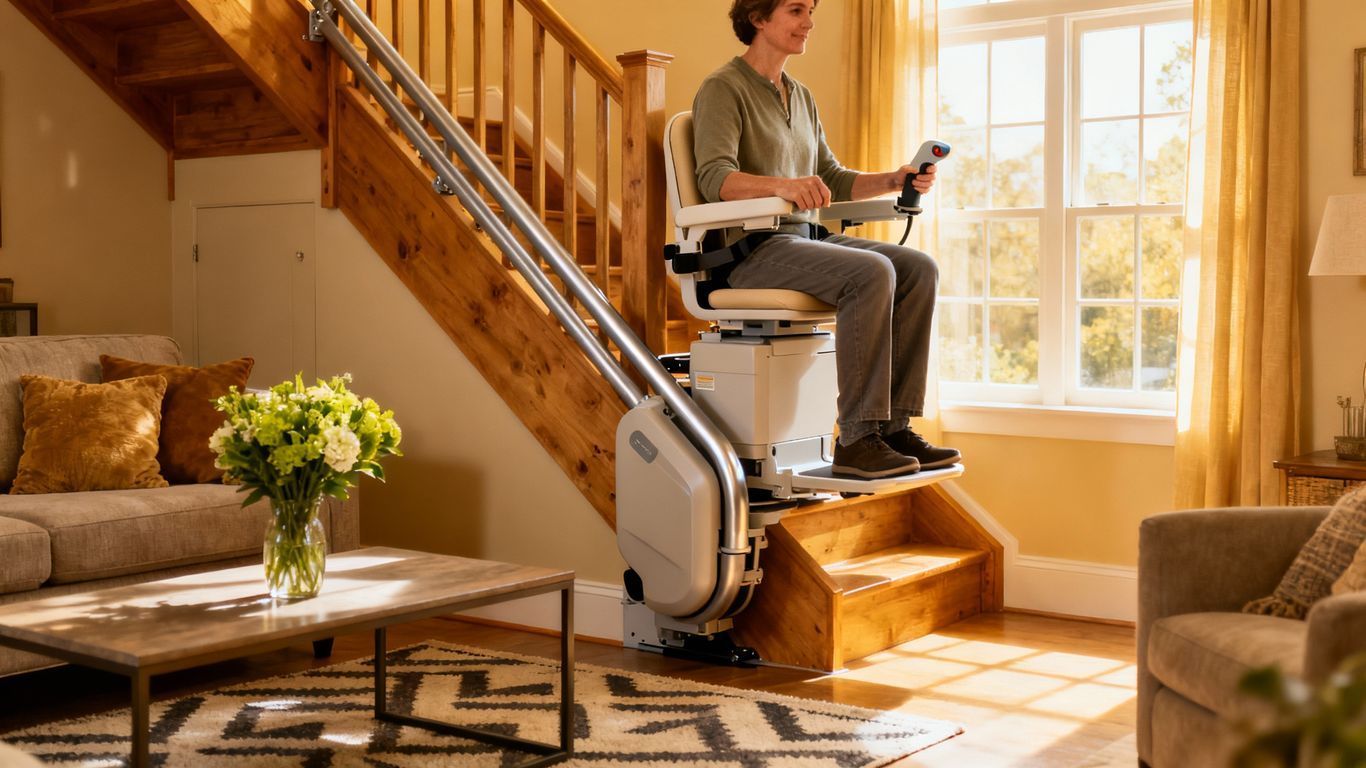
Why February Is the Perfect Time for Stair Lift & Home Accessibility Upgrades in Calhoun & LaFayette
